A lot of people get really paranoid about getting food poisoning when going traveling. It’s an understandable concern. No one wants to spend a week stuck inside sprinting between the bed and the toilet, especially if in a hostel, when you could be out enjoying yourself and exploring whatever wonderful location you’re fortunate enough to find yourself in.
The truth is though, food poisoning actually happens far less frequently that you would think given the stories you hear. Plus there are steps you can take to reduce the chance of you getting food poisoning in the first place, without having to change your behavior and eating habits to such an extent as to not be able to enjoy yourself. Spending your entire time traveling being overly cautions of everything you eat is not going to make for an enjoyable trip.
I’ve been traveling for almost two years now in Asia and have had food poisoning only once so far *touches wood*. And that’s even with having spent two months in India, a location notorious for food poisoning (although most just refer to it as Delhi Belly there). But I don’t worry about it constantly either. In fact there’s only five things I’ve done to give myself the best chance of avoiding food poisoning and I partake in a lot of behaviours you wouldn’t expect for someone who’s had food poisoning so infrequently.
Top 5 ways to Avoid Getting Food Poisoning While Traveling
1. Eat Live Natural Yoghurt
The “bad” bacteria that causes food poisoning in each location is different. Therefore to help your body out with being able to fight that particular type of bad bacteria in the area you are visiting as soon as you arrive eat some local livenatural yoghurt. This will contain the “good” bacteria of that area and therefore better prepare your stomach to fight any local bad bacteria you may ingest. Make sure it is live yoghurt though as otherwise it won’t contain the good bacteria that you want.
Taking probiotic tablets will also help with increasing your stomach strength in general so it’s worth taking them for a while before your trip and once on the road. This will be especially important if you have to take antibiotics at anypoint as they weaken your body’s ability to fight off bad bacteria. The live yoghurt and probiotics will help build this back up again though.
2. Don’t go on a cleanse
Depending on where you’re traveling, and your lifestyle preferences, you may be tempted to do a cleanse at some point on your travels. I, in fact, was actively encouraged (read practially bullied) to do one when doing Yoga Teacher Training in the north of India. Don’t do it. No matter how many other people you know who are doing it, how much pressure there might be on you or how good you think it might make you feel afterwards. A cleanse may make you temporarily feel good but it will greatly increase your risk of getting food poisoning. The reason for this is because cleanses literally strip everything out of the digestive system, good or bad. So as well as getting any toxins out you’ll also clear out the good bacteria that would have protected you from if you do happen to eat something that is contaminated.
3. Ease yourself in
A lot of the instances of “food poisoning” that travelers suffer are actually nothing more than the body not being used to the particular bacteria of an area. A local could have eaten the exact same meal as you and have been absolutely fine, because their bodies have built up a resistance to that bacteria. Give your body a chance to do the same as well by easing yourself in gently. If you’re just arrived in a county you’ve never been to before don’t go all out and try every single local delicacy they have one after the other for every meal. Start simple, with simple foods that have the lowest risk of containing harmful bacteria first and then add more variation in over time. This way your tolerance to local bacteria will gradually build and you can be more and more adventurous with what you eat as time goes on.
4. Eat vegetarian where possible
I have actively spent time building up resistance to the bacteria in any area I’m visiting along my travels but by far one of the largest contributing factors to having only had food poisoning once while traveling Asia for two years is the fact that I’m a vegetarian.
I do technically eat fish too but only very rarely so my diet is almost completely vegetarian most of the time. Whether or not you eat meat makes a big difference to the risk of you getting food poisoning. Two of the highest risk factors for food poisoning when traveling are unsanitary water and contaminated meat. As you’ll see below you don’t actually need to worry about the water situation as much as you might think (as long as you don’t drink it that is) so that just leaves meat that’s creating the biggest risk. I know for a lot of meat eaters the thought of giving up meat is well, horrible, but you might you might be pleasantly surprised in some of the places you visits.
Some places, like Bali, do vegetarian and vegan food so well that I know hardcore meat eaters who have visited those locations and haven’t missed meat in the slightest.
5. Eat local food
It might seem logical that you’d be safer eating the food that your body’s used to from back home when traveling but that’s not the case. Whist your body will be more familiar with food from back home the people cooking it where you are won’t be so the chances of a meal being prepared badly and leaving you at risk of food poisoning are much higher if you eat food that’s not usual for that area. It’s much safer to eat local food.
I have a good friend who lives in India and the only time her and her friends get food poisioning is when they go to the fancy Western places. They’re fine when they eat the local food. I’ve met countless other travelers with the same experience too. And it makes sense. Eat the local where possible.
Adopting just these above behaviors will make a big difference to your chances of getting food poisoning. You may notice that some of the key items people worry about a lot aren’t listed above, such as drinking ice or eating salad. That’s because whilst there are risks with these items, in most places you actually need to worry about them a lot less than you’d think.
How paranoid you actually need to be about food poisoning
Consuming Ice
The first time I ever travelled to Asia I was so paranoid about the ice. Even in bars in the middle of Koh Tao I was asking bar tenders not to use ice in drinks, which resulted in multiple scowls of disgust for my stupidity.
You see the thing is, and what I didn’t really think about at the time, having just always listened to people saying “DON’T DRINK THE ICE”, is that in most locations where they bother to make ice, and have access to freezers to do so, people are aware of the dangers of local water and so don’t use it to make the ice as they don’t want to poison themselves or their customers.
Me worrying about the ice in Koh Tao was actually just ridiculous because of course a place that touristy is not serving people ice made from local tap water. What I’ve fond since then is actually that in most places you’re fine to drink the ice, even where it’s less touristy.
I’ve had ice in my drinks in India, drunk it in cold tea at the side of dirt track roads in Indonesia and actually in every single country I’ve been to in Asia. How cautious I have been about where I will accept ice from has varied by place. For example in India, I didn’t just go around accepting ice from anyone, but when in areas frequented by tourists, sure I took the ice. In a lot of them, they’d even have signs up to reassure people that they didn’t use tap water for the ice. In most of the places I’ve been in Asia though, I’ve just drunk it. And I’ve never once had a problem as a result of it.
That’s not to stay there aren’t risks but almost two years in and nine countries in Asia later and it’s not caused me a problem once.
Ice Cream
Strangely a lot of people don’t seem to worry about this one, which given the level of concern I see some people have about drinking ice in certain locations or using the local water in anyway is kind of bizarre.
It will be fine to eat ice cream in a lot of places HOWEVER if you are somewhere you wouldn’t feel comfortable having ice in your drink, don’t eat the ice cream either. After all ice cream contains a lot of frozen water. It’s pretty much the same thing.
Brushing your Teeth
Again I really worried about this one the first time I ever ventured out of Europe, always taking a bottle of water to the bathroom with me to brush my teeth.
Unless you plan on literally sucking the water out of your toothbrush, just brush you teeth from the tap, you will be fine*.
Salad and uncooked vegetables
Salad and uncooked vegetables washed in water that isn’t safe to drink of course come with a risk of food poisoning. That said though in most places, like with the ice, the salad and uncooked vegetables will have been treated in the correct way. Especially if you’re traveling in a third world country and are in a Western restaurant (it’s unlikely you’d find salad at a local place in most third world countries). They don’t want to give their customers food poisoning.
Working out whether you’re safe to eat the salad or uncooked vegetables in any location requires a judgment call each time but you need to be a lot less worried about it than you’d think.
Is the water safe?
I read a travel book not that long ago where the author said something to the effect of “Most of the water in the world is fine to drink”.
“Ummmmmmmmmm…….” I feel like a lot of people might get sick off that advice. A lot of the water in this world is not safe to drink from the tap. Sure it is in most Western Countries, but step outside of them and the answer is most likely that the water is not safe to drink.
If you’re EVER in doubt, don’t drink the tap water. Just buy a bottle of mineral or filtered water until you find out for sure if you can drink the tap water.
Even if you’re area where you can’t drink the tap water though, the above points still apply. Use common sense to judge the location you’re in and the real likelihood that they would have used the tap water to prepare your salad, ice cubes or anything else. More often than not the answer is that they wouldn’t have.
No matter what you do though, if you travel for long enough changes are you will get food poisoning at some point.
How to Cure Food Poisoning While Traveling
My general rule on food poisoning is, if it wants to come out there’s a reason for it. Your body needs to get rid of whatever it is, so don’t stop it from happening.
HOWEVER I have one exception to this rule; that is if you are going to be traveling that day.
If you’ve got a 12-hour bus, boat or whatever ride, yes absolutely take some medicine to stop the diarrhoea or vomiting. I always, always let me body just try to get rid of the food poisoning on it’s own but there are certain situations when traveling where you do just have to stop it happening for a bit so you can “safely” make it to your next destination.
Since I’m a believer in the “Oh just let it work it’s way out method” that has meant in the past I’ve left going to see a doctor about food poisoning much longer than I should have done. I had food poisoning once where I couldn’t eat anything for a week, lost over ½ a stone (4 kg), was crippled over in pain and unable to stand up straight because I was essentially starving. It took me about a week and a half to go to the doctor. I should have gone much sooner. Turns out the food poisoning I had could have given me brain damage because it’s a bacteria that effects the spinal cord**.
If the food position doesn’t just work its way out after a couple of days make sure you go get it checked out, no matter how much a trip to the doctor costs in whatever country you’re in. Remember your health is the MOST important thing. If you’re not alive anymore that’s going to cut your travels a lot shorter than the loss of a hundred or so pounds for a doctor’s visit.
It’s really not worth spending your whole trip being paranoid about food poisoning. Implement the 5 tips above to reduce your risk but accept that it may still happen at some point no matter what you do so you might as well enjoy yourself and worry about it if and when it happens. In fact the more cautious you are, the more likely you will be to get food poising as you won’t build up resistance!
Got any top tips you use for avoiding food poisoning while traveling? Let me know in the comments below so they can benefit everyone.
*I’m not a medical professional, this is just based on my own experience and that of others. Always use your own judgment as to what you’re comfortable with.
**I got this food poisoning in an extremely popular tourist area in Spain where it was safe to drink the tap water and most people wouldn’t have been paranoid about getting food poisoning! It can happen anywhere.
Like it? Pin it.
Related Posts
How To Bargain Like A Local
I don't know anyone, apart from my Dad, who actually enjoys haggling. Most of us, from Western countries especially, are never taught how to bargain as it's a pretty useless skill in most day-to-day shopping activities back home. It's not in a lot of the...
Reducing the Impact of Theft
Unfortunately no travel safety tips will ever be able to completely remove the risk of anything bad happening on your travels. The good news is however that travel is actually a lot safer and no way near as risky or dangerous as people, and the news, like to make out....
The Best Travel Money Solution
Finding the best travel money solution is incredibly important as aside from your passport, having access to money is the second most important thing while travelling. But circumstances frequently work against us whilst traveling to make accessing money...
Learning How to Drive a Scooter
Learning how to drive a scooter isn't actually that complicated but it does take some practice. It's mostly a balance thing but there are a number of other important elements to be aware of. I learnt how to drive a scooter for my travels in Asia where there are plenty...
Why I Cover Up when Traveling, even though I’m a Feminist & Detest Victim Shaming
There aren’t many things I hate with a passion; racism, homophobia, sexism and victim shaming are about the only ones that make the list. Unfortunately, traveling in Asia for the last two years I’ve witnessed a lot of all four. In fairness, I witnessed a...
Monkeying Around
I feel it’s only fair to warn you now that if you’re about to go travelling, it will make you dislike monkeys. "But monkeys are so cute?” I hear you cry. I thought so too, until I travelled in Asia, a lot. The first place I stopped on this trip to Asia...

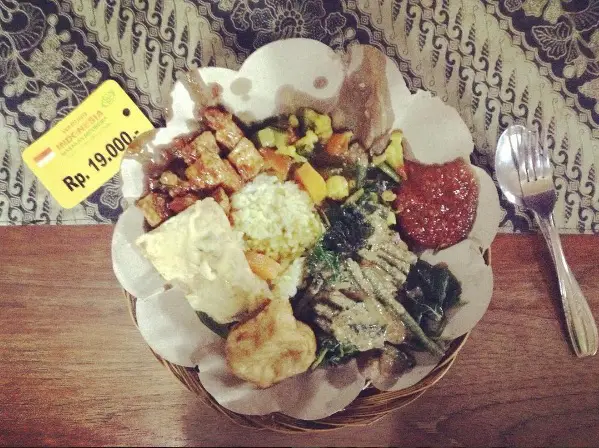


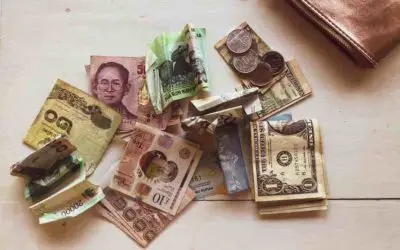
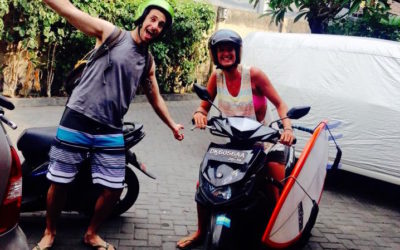

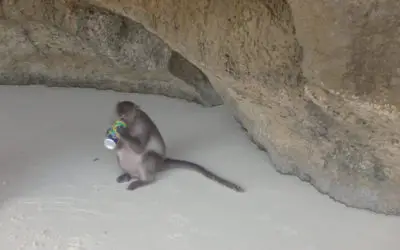



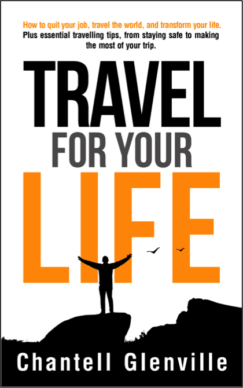
0 Comments